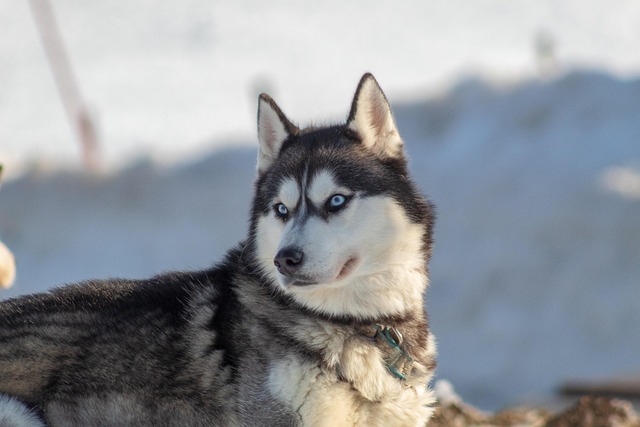
How can I tell if my dog's heatstroke is serious
Let’s be real: It’s a sticky August morning in Los Angeles, and you took your 2-year-old Golden Retriever, Max, for a walk a little later than usual
Finding your Husky pacing, whining, or unable to settle down at night can leave you feeling frustrated and concerned. Understanding the root causes behind this restlessness isn't just about getting a good night's sleep—it's crucial for ensuring your energetic companion's well - being while staying in line with responsible pet ownership practices.
Huskies are descendants of working sled dogs bred for endurance and activity in cold climates. Their high energy levels mean they need plenty of physical and mental stimulation throughout the day. If your Husky hasn't burned off enough energy with walks, runs, or playtime, that pent - up vitality can manifest as restlessness at night. Many local dog parks offer extended hours, allowing you to fit in that extra exercise, but always remember to follow park rules regarding leash use and waste disposal.
These dogs have a strong pack mentality. Being left alone in a quiet house at night can trigger separation anxiety. They might whine, scratch at doors, or constantly move around seeking comfort and companionship. Crate training, when done properly, can provide a safe and cozy den - like space, but make sure it complies with local animal welfare regulations regarding size and ventilation.
 The sleeping environment plays a significant role. Huskies have thick coats designed for cold weather, so a room that's too warm can make them uncomfortable and fidgety. On the other hand, drafts or an uncomfortable bed can also disrupt their sleep. In shared housing, be mindful of noise levels when adjusting your Husky's sleeping setup to avoid disturbing neighbors.
The sleeping environment plays a significant role. Huskies have thick coats designed for cold weather, so a room that's too warm can make them uncomfortable and fidgety. On the other hand, drafts or an uncomfortable bed can also disrupt their sleep. In shared housing, be mindful of noise levels when adjusting your Husky's sleeping setup to avoid disturbing neighbors.
Diet can impact your Husky's nighttime behavior. Eating too close to bedtime, or consuming food that doesn't agree with them, might cause digestive discomfort. Some treats or ingredients could even give them a burst of energy at the wrong time. Always check food labels and ensure any diet changes comply with local pet nutrition guidelines.
Health issues can't be overlooked. Dental problems, joint pain, or even parasites can make your Husky restless. If the nighttime restlessness seems sudden or is accompanied by other symptoms like loss of appetite or lethargy during the day, it's time to consult a vet. In many areas, local laws require pet owners to seek medical attention when animals show signs of distress.
Addressing your Husky's nighttime restlessness takes patience and a willingness to experiment. Whether it's adjusting their exercise routine, improving their sleeping environment, or seeking veterinary advice, taking proactive steps will lead to more peaceful nights for both you and your furry friend.

Let’s be real: It’s a sticky August morning in Los Angeles, and you took your 2-year-old Golden Retriever, Max, for a walk a little later than usual

You're enjoying a summer afternoon at the park when you notice your dog has stopped panting and appears disoriented - their gums are bright red

Let’s paint the picture: You’re in your Denver apartment, watching your 4-year-old Boston Terrier, Ruby, plop down mid-play session with her favorite toy

Many dog owners notice their pets nails seem shorter after regular walks,but how much does this daily activity actually help?The answer depends on where you walk—concrete sidewalks or asphalt streets gently file nails as a dog's paws hit the ground

Most dog owners notice their pup scooting across the carpet at some point, but few connect it to impacted anal glands. These small sacs near a dog’s rectum secrete a scent for marking territory

Most vets agree that regular dog teeth cleaning is key to avoiding painful dental issues later. For healthy adult dogs, a professional cleaning at the vet’s office every 12 to 18 months usually works well.